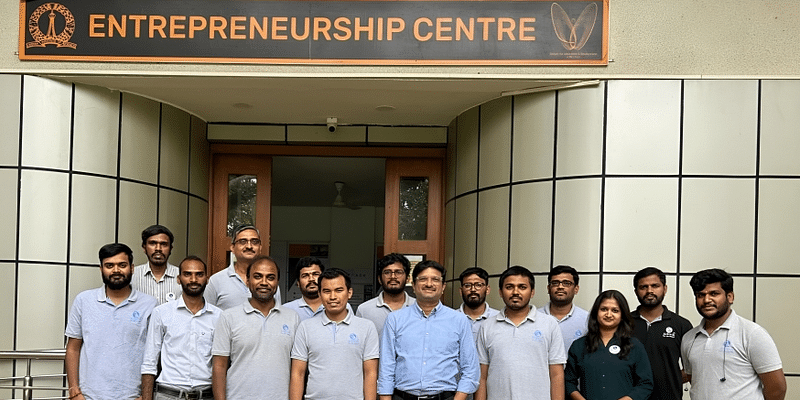
Every year, an astounding 17 million individuals die of Non-Communicable Diseases (NCDs) before reaching age 70.[1] Over three-quarters of the lives lost are from low- and middle-income countries, where cardiovascular diseases (CVDs) and respiratory diseases are among the top three causes of death.
Many of these deaths are avoidable. AI Health Highway aims to reduce premature NCD deaths by 25%, by integrating the good old stethoscope with state-of-the-art signal processing, artificial intelligence (AI), and machine learning (ML) for screening, early detection and prediction of heart and lung disorders.
Too few for too many
CVDs and respiratory diseases afflict Indians across the country, but specialists who can tackle them are too few and far between. The facilities and expertise needed for their management are concentrated in super-speciality hospitals located in large cities, requiring those who live in rural or underserved areas to travel hundreds of kilometres and spend out of their savings or must borrow money for accessing quality healthcare[2].
Can around 5,500 cardiologists and 2,500 pulmonologists possibly cater to the health needs of 1.3 billion citizens? Why not involve front-line healthcare workers like family physicians, nurses and ASHAs – who live and work closer to a patient’s doorstep – in the early detection of heart and lung disorders?
AI Health Highway combines the widespread availability of non-specialists in urban, as well as non-urban centres with AI/ML that can bridge the knowledge gap, culminating in an advanced version of a familiar medical tool – the stethoscope.
Old wine needs new bottle
Doctors use stethoscopes to listen to the sounds of the heart and the lungs, which can reveal underlying disorders in them – a process called auscultation. Although non-invasive, low-cost and portable, the traditional stethoscope has many limitations.
The interpretation of heart and lung sounds heard during auscultation currently requires a trained doctor, limiting the use of stethoscopes in low-resource areas. Two medical professionals may interpret the same sound differently, leading to differing diagnoses and treatment regimes. It takes years of training and experience for a doctor to correctly identify an abnormal sound; an error in interpretation can result in misdiagnosis or missed diagnosis.
Conventional stethoscopes cannot transmit heart/lung sounds for a telemedicine consultation in remote areas or record them for a second opinion. Abnormal sounds (called murmurs in cardiovascular disease) can be very subtle and are easy to miss, especially when muffled by background noise from the patient’s environment.
Finally, even when an abnormal sound is heard by the doctor, additional tests are almost always required to confirm the diagnosis.
AI Health Highway’s AI Steth is an advanced digital stethoscope that overcomes each and every one of these limitations.
Innovation: Device, data, detection
AI Health Highway was founded in 2019 by Dr Satish Jeevannavar, an army physician and alumnus of IIM Bangalore. Using a cricket analogy, he explained how AI Steth works: “Just as a snickometer uses both sound and visual representation to confirm if the ball touched the bat, our device amplifies heart and lung sounds and converts them into visual patterns. These can be viewed on a smartphone via Bluetooth. With this, doctors can use data in both sound and sight form to make a better diagnosis.”
A non-specialist can examine patients using AI Steth. The audio and visual information thus recorded can be stored and later shared with specialists for further action. This information syncs with a mobile app whenever Wi-Fi or mobile data become available, bypassing network connectivity issues in remote areas.
AI and ML are integrated into AI Steth’s platform, automatically alerting healthcare workers to abnormal heart and lung sounds. With this, the entire process of diagnosis becomes more objective.
The road thus far
Since inception, AI Health Highway has incorporated feedback from its end-users while developing its product. From introducing a ‘quick’ auscultation feature that delivers results in 30-90 seconds to ensuring that the device itself has the look and feel of a conventional stethoscope, the start-up has overcome barriers to early adoption.
After successfully having its technology validated in 2020, AI Health Highway recently underwent clinical validation for its ability to detect cardiovascular disease at Bengaluru’s Jayadeva Hospital, a renowned cardiology centre. “Our results were exceptional, with a murmur detection accuracy of 98.34% and a specificity of 99.73%. These numbers exceed our competitors’ in the US, confirming the value of our approach,” said Dr Jeevannavar.
AI Health Highway is ISO 13485 certified. With support from the Pfizer INDovation program, it has secured a CDSCO manufacturing license, and is now pursuing FDA’s 510K approval for the US market. With program partner PATH, AI Steth has been deployed in a public health setting in rural Maharashtra where it was used to screen over 20,000 individuals for cardiovascular disease.
Ai Steth is available in the Indian market and the program also enabled them to showcase their product at the 72nd World Health Assembly in Geneva, G20 events in India, Viva Tech 2023 in Paris and Slush 2022 in Helsinki. Other partnerships include the Indian Institute of Science, where the start-up was incubated and gained expertise in machine learning and signal processing, Sound Hub in Denmark for acoustics and sound engineering, and CDL Montreal in Canada for AI capabilities. The start-up has raised two rounds of investment and is in the process of raising Series A funding.
By combining AI and ML with simple, everyday tools like a stethoscope and a smartphone, AI Health Highway is making specialised healthcare more accessible, affordable, and efficient.










